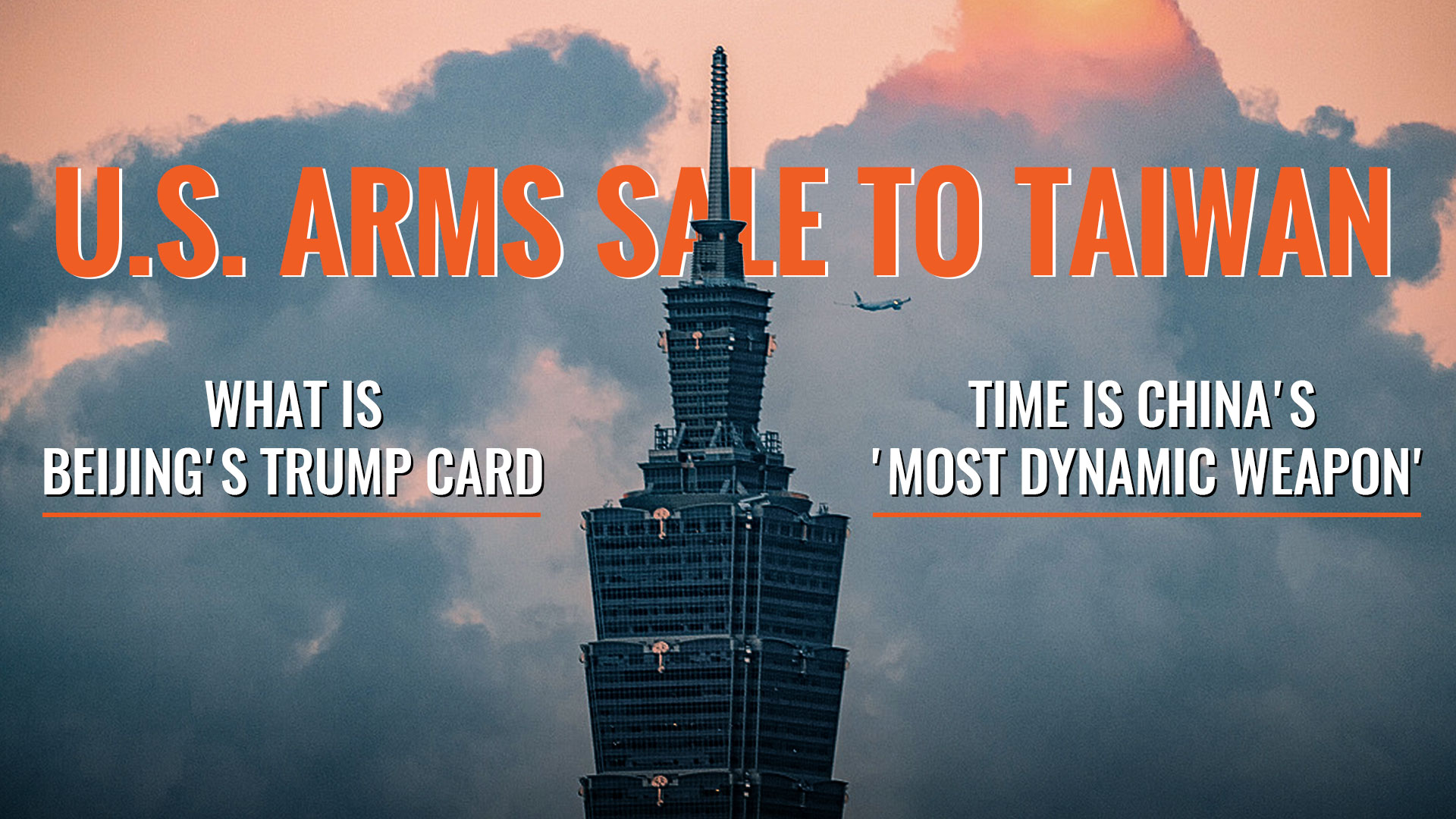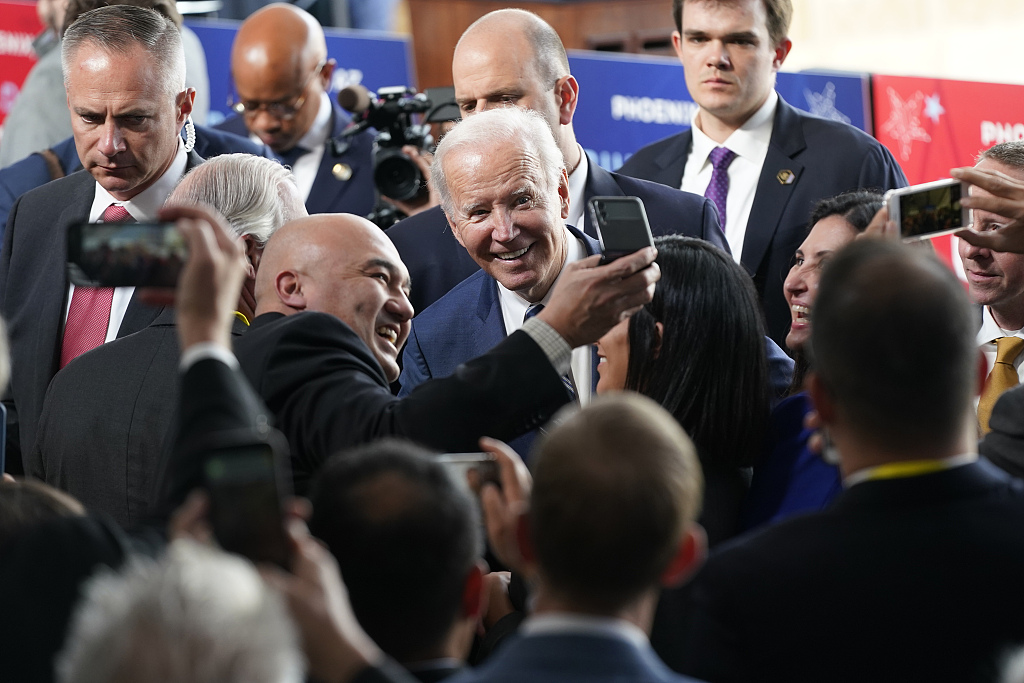03:47

Editor's note: On March 1, the U.S. Department of State approved a possible foreign military sale of $619 million to Taiwan Island, China. Further, Senior U.S. officer, General Mike Minihan, recently created a stir by predicting a China-U.S. war in 2025. How credible is such a prediction? CGTN collaborated with American journalist Bradley Blankenship to conduct an interview with Garland Nixon, U.S. radio talk show host and political analyst, who shared his opinions on the topic. The views expressed in the video are his own and not necessarily those of CGTN.
CGTN Opinions: How judicious is it for the U.S. to supply weapons to Taiwan region at a time when they're also deeply entrenched in the Russia-Ukraine conflict? Won't it put additional strain on the U.S.?
Garland Nixon: It's a sign of desperation and irrationality. The U.S. is fighting against the reality of a changing world, a modern world in which there are various poles of power in the world, and in which the newer poles of power are not interested in hierarchy and the U.S. doesn't know how to deal with it.
It's like a man who falls in the water and doesn't know how to swim so he reaches and grabs in desperation in every direction he can hold on to something because he doesn't have a plan.
CGTN Opinions: On the one hand, Secretary of State Antony Blinken in February alleged that Beijing was possibly considering providing "lethal support" to Russia. On the other hand, just weeks after that, Washington itself announced the new arms sale for Taiwan, which "posed a severe threat to peace" across the Taiwan Strait, China's Ministry of National Defense remarked on March 3. What do you make of this contradiction of Antony Blinken?
Garland Nixon: The U.S. is pushing a hierarchical world order where the rights that any given nation has are based on where they sit on this hierarchy. It's nothing more than international feudalism where the U.S. says, "We are the class of nobility, and the European vassals of theirs are the commoners, and everyone else is a peasant." The noble class enjoys the prerogatives to do whatever they want and the peasants can't.
The problem is that the other people around the world don't want to accept that hierarchy so this is a battle.
CGTN Opinions: Senior U.S. officer, Air Mobility Command General Mike Minihan, recently created a stir by predicting a China-U.S. war in 2025. How credible is such a prediction?
Garland Nixon: It can be avoided. Here's the way I see it: the U.S. is looking at it, saying, "If we don't go to war with China, or we don't settle this issue within the next three or four years, we will lose because China is going to be very powerful."
"If we don't fight China by a given time period, we're not going to be able to beat them."
China is smart enough to say, "Well, I think we'll just wait to have five years after that time period. Then we'll revisit this issue again." If time is China's most dynamic and most efficient weapon, that's the weapon they're going to use.

U.S. President Joe Biden takes photos with guests after touring the building site for a new chip plant of Taiwan-based TSMC, in Phoenix, Arizona, U.S., December 6, 2022. /CFP
U.S. President Joe Biden takes photos with guests after touring the building site for a new chip plant of Taiwan-based TSMC, in Phoenix, Arizona, U.S., December 6, 2022. /CFP
CGTN Opinions: The U.S. government has taken a series of steps to limit China's access to key semiconductor technologies and supply chains while at the same time enhancing its collaboration with Taiwan-based TSMC, one of the world's biggest chip makers. How do you look at the U.S. strategy of pitting Taiwan's enterprises to contain China?
Garland Nixon: What they're doing is short-term gain. The U.S. is going to put China behind the eight-bool a little bit in the short-term, maybe for a few years. In the short run, it is going to be a little bit of a problem for China catching up with their technology on chips.
But in the long run, 10 years from now, they'll look back and they'll thank the United States for putting them in a position to become one of the world's foremost chip makers.
Script editor: Lu Xiaoyi
Video editor: Feng Ran
Cover image designer: Liu Shaozhen
Executive producers: Bi Jianlu, Zhang Peijin, Wang Xinyan
Chief editors: Li Shou'en, Wang Ying
(If you want to contribute and have specific expertise, please contact us at opinions@cgtn.com. Follow @thouse_opinions on Twitter to discover the latest commentaries in the CGTN Opinion Section.)